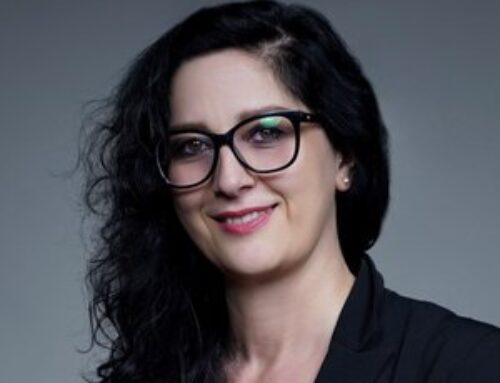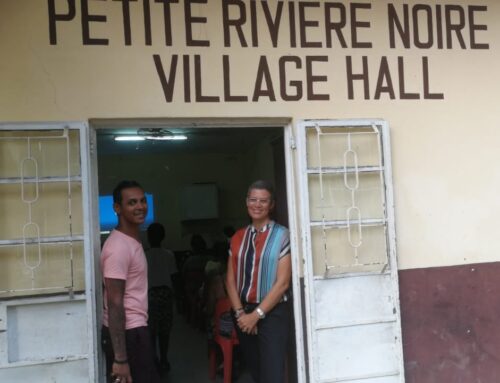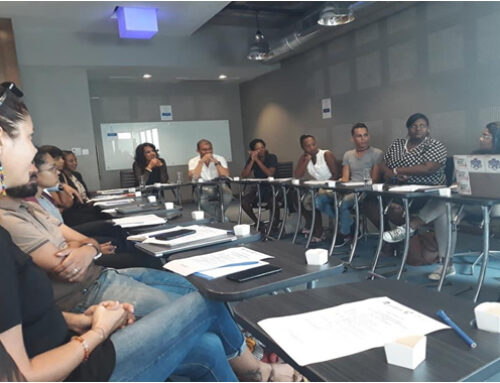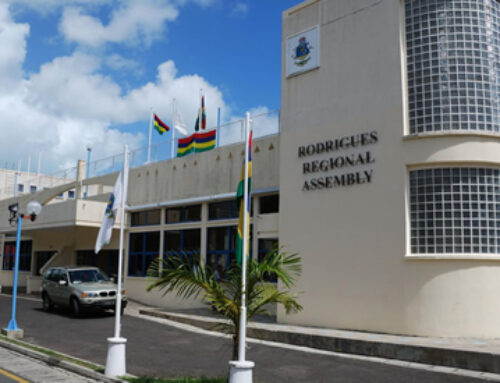Continuer de nous former et permettre aux personnes avec qui nous travaillons de bénéficier de formations, est un élément très important, au sein de Kolektif Drwa Imin.
Intersectionality, by Roshika Deo (February, 2021)
Roshika Deo is a feminist from the Pacific region and has worked widely across the Pacific region and beyond. She has a law and public policy educational background. Roshika has worked for over 15 years in the development sector on gender, SOGIESC, human rights, good governance and democracy, social justice, equity, inclusion, intersectionality and women’s rights.
Une vingtaine de participant.e.s de Maurice et Rodrigues ont bénéficié de la formation.
Objectives:
-
Understanding the Sexuality, Sexual Orientation Gender Identity and Gender Expression: SOGIE
-
Building commonalities and Intersectionalities Women, Girls, Children, LGBTI communities
-
Understanding Activism, Advocacy and Movement Building within the context realities of Women, Girls, Children, LGBTI communities
-
Advancing understanding in Communications and Access to Information
-
Understanding Activism, Access to information and Ethical Reporting within the context realities of Women, Girls, Children, LGBTI communities
“We live in a context of systems, structures and power dynamics. We have different identities, so intersectionality matters. Without an intersectional lens, events, movements that aim to address injustice towards one group may end up perpetuating systems of inequalities towards other groups.”
Roshika Deo, February 2021
Feeback by participants
“It was the first time I heard this word intersectionality ,coming together to think about it,how we can apply it in our workplace or our life in a day to day relationship with others was very beneficial for me. The training made me discover all the aspects of the diversity of people and also the right to women,this is what we want to initiate in our services which is a community development project. The intersectionality approach is a tool we can apply in our workplaces, welcome the ideas of all ,respect the rights of the person,providing space to participation all people within their differences,diversity,race,sex ,culture,etc is for me great importance if we want to meet the needs of vulnerable people, this training is beyond welcoming diversity it is a hole. Thanks for welcoming us to the training.”
Christiane
Social Worker
“The session provided clarity geared towards the understanding of the SOGIESC concepts. Very useful for gender equality advocacy.”
Sheistah Bundhoo
Gender Links Senior Programmes Officer
What is intersectionability?
For Bilge, intersectionality refers to a transdisciplinary theory aimed at understanding the complexity of identities and social inequalities through an integrated approach. The intersectional approach goes beyond a simple recognition of the multiplicity of oppressive systems operating from these categories and postulates their interaction in the production and reproduction of social inequalities (Crenshaw 1989; Collins 2000; Brah & Phoenix 2004). It proposes to apprehend “the social reality of women and men, as well as the social, cultural, economic and political dynamics which are attached to it as being multiple and determined simultaneously and interactively by several significant axes of social organization” (Stasiulis 1999: 345).
Many activists in the world worked on a project of Kaleidoscope Trust and Woven Ink, to explain their perception of the concept of “Intersectionality”.




